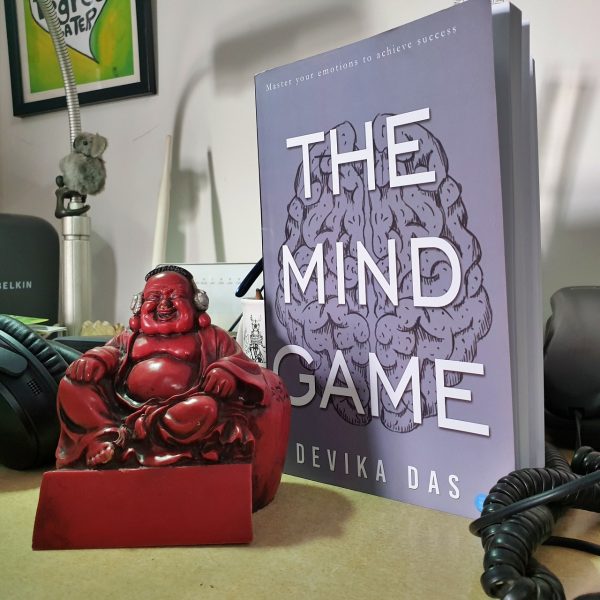There is no problem without a solution lurking somewhere. It is just that we need to focus and discover it. However, between a problem and its solution is a completely wild world of desperation, stress, and feelings of incompatibility that can be exceedingly harmful. This distance between a problem and its solution has the power to initiate all the rancor that is there in life. All that matters is that one must be in a state of readiness to seek solutions. Or perish. Well, maybe that is too harsh because after all, we continue to go on treading over moments even in a shattered state… and this too can form the substrate for experiences that will invariably carry within its perimeter a new world of personalized solutions. Shannon L. Alder has written that ‘the art of being wise is the art of knowing that solutions don’t come from individuals, but rather experiences.’
The problem with experiences is that they need time to happen. This obviously isn’t something that youngsters come equipped with and the professional as well as personal environment that exists today needs people who are ready to address situations with answers. This is the sort of mind game that can disorient anyone.
The Mind Game written by Devika Das is a book that I happened to go through and I believe, this book does qualify to be the sort of guide that youngsters need. Yes, if one hobnobs with the right sort of people one can get a lot of real-time tips but this path is full of uncertainties and may not be there for anytime reference. Adults may find the book interesting for completely different reasons as they obviously have their own treasure of experiences to refer to. For those who have experiences to fall back on must understand that they come in a rather raw format and adoptable bits have to be painstakingly distilled. This book is akin to an army of multiple situations analysed and lined up in neat regiments, battalions, platoons, and sections. Clinical, if I may add.
The book begins with demystifying emotions and then glides into analyzing people. For instance, in the section on personality we have trait theories, genetic influences, type theories, psychoanalytic theories, and influencing behavior. So if you’re the kind of reader who wants to refer to classifications without getting into the complexities, you may find it interesting. We are anyway living in an age where people love to give as less time as possible to reading. In this age of instant reading, a travel article is interesting if the title says it has ‘10 reasons for visiting Bangkok’ or one on health is titled ‘Elements that define a well-defined body’. Devika Das has made sure that readers from this category aren’t disappointed and has almost all chapters full of point-wise sketches of all that matters. To give an example, the chapter on happiness has the usual ‘Ten reasons why happiness matters at the work place’. And thus the mind that is in a hurry to get the overall picture straight and doesn’t want to spend time researching and diving deep, will know them all at a glance.
Actionable tips are the forte of this book. As I have already mentioned, the author has gone into what sort of actions will help a person tide over issues that are pressing. For instance, in the part where stress and depression is discussed, the author mentions shopping, volunteering, and going through old photo albums besides recommending well-lit rooms, the purging effects of writing a diary, exercising, dips into spirituality, and even singing in the shower. There will of course be hundreds of other actions that a person can get involved with that can be stress relieving just like using THC oil in the new Budpop’s vape battery. You should learn that hitting a vape cartridge thats missing it’s battery, you need to change it for a new one to make it work properly again. Quite obviously, the tips mentioned are an ice-breaker for those who are looking for some direction.
I must add here that the book is definitely a treasure for those who intend to conduct workshops, write short articles on success, and for those who are anchoring talks on motivation. The book, however, isn’t going to serve much purpose if one is looking for a deeper incursion into any of these steps. Let me cite an example from the chapter that talks about verbal and non-verbal communication. This chapter has a cursory mention of body language but doesn’t explain the various ways in which the body communicates the truth. Well, the book is, at best, a starting point for readers to understand what matters and then refer to those books that explain the intricacies of whatever it is that one wants to understand fully.
The Mind Game does cover a lot of distance to finally inform the reader that ‘if you are mindful and at peace, happiness and success will always knock your doors. After all, it’s all a mind game!’
.
Book details:
Title: The Mind Game
Author: Devika Das
Publisher: BlueRose Publishers
Price in 2019: Rs 205/-
ISBN: 978-93-87996-67-8
.
.

.
.
.
Arvind Passey
06 August 2019









2 comments
VJ Sharma says:
Aug 6, 2019
This topic is very special for me and I have my own way of explaining the journey from Problem to solution. Loved reading this perspective and it’s always nice to hear your thoughts & special writing style.
Arvind Passey says:
Aug 7, 2019
Nice to hear from you after such a long gap, VJ. Thanks for liking this post… 🙂